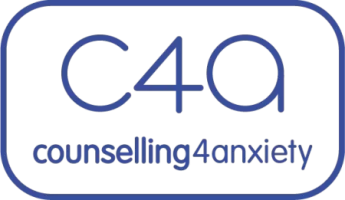Anxiety has a way of sneaking into your thoughts, whispering worries and planting doubts that feel all too real. “What if I mess up?” “I’m not strong enough.” “Everyone else seems to have it together—why can’t I?” If this inner dialogue sounds familiar, you’re not alone. Anxiety thrives on negative self-talk, keeping you stuck in a cycle of fear and self-doubt. In the end, the emotional fears and physical feelings that come with anxiety can be changed, by reframing the self-talk that we all carry out on a daily basis.
And here’s the thing—just because your mind tells you something doesn’t make it true. And the good news? You have the power to shift that inner voice into something far more kind, compassionate, and supportive. This isn’t about pretending everything is perfect. It’s about learning to talk to yourself in a way that eases your anxiety rather than fuels it and in acknowledging what you can do, what you can achieve and what you have gone through in the past. Viewing these events through a self-compassionate lens can also be an antidote to anxiety and stress.
The Power of Self-Talk
Think about it—if someone spoke to you the way anxiety does, constantly doubting you and making you feel small, you wouldn’t want to be around them, right? So why should we accept that from ourselves? The words you say to yourself matter. They shape how you feel, how you react, and how you move through life. The more we practice speaking to ourselves with understanding and encouragement, the more we can break free from anxiety’s grip.
Never under-estimate the power of positive self-talk which can carry you through anxious situations and ensure that you can relearn that anxiety is not life altering or catastrophic. It simply passes and can be worked through. This is where the body and the mind relearns.
How to Shift Your Inner Dialogue
This isn’t about forcing positivity or pretending hard things aren’t hard. It’s about shifting towards a voice that supports you rather than tears you down. Here’s how you can start:
1. Notice When Anxiety Speaks Up
That anxious voice? It’s sneaky. It often runs in the background without us even realizing it. Pay attention. What’s the story your mind is telling you? Is it saying you’re not capable? That you’ll fail? That people will judge you? Simply noticing these thoughts is the first step in changing them.
2. Question the Thought
Anxiety can feel so convincing, but it’s not always truthful. When a negative thought pops up, pause and ask: Is this really true? Would I say this to a friend? Is there another way to look at this? More often than not, you’ll find that anxiety is exaggerating things, not giving you the full picture.
3. Reframe It with Compassion
Instead of saying, “I can’t handle this,” try: “This is tough, but I’ve gotten through tough things before.” Instead of, “I always mess up,” say: “I make mistakes like everyone else, and that’s okay.” Shifting your words, even slightly, can start to rewire how you see yourself.
4. Be Your Own Friend
Imagine your best friend is struggling. Would you tell them they’re failing, that they’ll never get better, or that they’re not enough? Of course not! You’d remind them of their strengths, their progress, and how much they matter. You deserve that same kindness from yourself.
5. Choose Affirmations That Feel Real
Affirmations don’t have to be over-the-top to be effective. If “I am fearless and unstoppable” feels forced, go for something more grounded: “I am learning to handle challenges with more ease,” or “I am doing my best, and that’s enough.” The key is to choose words that feel genuine to you.
6. Practice, Practice, Practice
Like any new habit, this takes time. Set reminders, write down positive statements, or even say them out loud. The more you do it, the more natural it will feel. One day, you’ll catch yourself speaking to yourself with kindness without even thinking about it.
You Deserve a Kinder Inner Voice
Anxiety might always try to pull you into doubt, but you don’t have to believe everything it says. You have a voice inside you that is stronger, wiser, and far more compassionate—you just have to give it a chance to speak.
The next time that anxious voice creeps in, pause. Take a breath. And remind yourself: I am more capable than I give myself credit for. Because you ultimately are.

